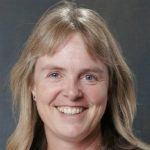Population Research Discovery Seminar: Elizabeth Cooksey
Posted: 4/10/2017 (CSDE Seminar Series)

The Amish in the 21st Century
The Amish are well known for their distinctive dress, restricted use of modern technology, a continued reliance on the horse and buggy for local transportation, maintenance of their Pennsylvania German dialect, and a strict adherence to a rural-based lifestyle. They are also known for their high levels of fertility. In the preface to his 2001 book The Riddle of Amish Culture, Donald Kraybill writes that the Amish story is “a fascinating tale of traditional people navigating their way through the swirling rapids of modern life.” The Amish are not only a draw for tourists, but their rapidly expanding population has also brought them into increased contact with the non-Amish through intensified migration to new geographic areas. This research uses individual and household demographic data to ask the question of how the growing influence of modern life might have impacted core beliefs and behaviors of the Amish in the early part of the 21st century.
Elizabeth Cooksey is Professor of Sociology and the Director of the Center for Human Resource Research (CHRR) at The Ohio State University. She holds a BA in Human Sciences from Oxford University and a PhD in Sociology from Brown University. She has been a Visiting Scholar and Visiting Fellow at the Center for Longitudinal Studies, London University and is a past president of the international Society for Longitudinal and Life Course Studies. Much of her research focuses on children and youth, and life course transitions and she has been the PI of the 1979 National Longitudinal Survey of Youth’s Child and Young Adult studies for more than a decade. Much of her research on the Amish has been undertaken with rural sociologist, Joseph Donnermeyer. Together they have spent the last decade creating a database of the Amish in the North America and trying to keep up with rapid Amish settlement growth.
You can schedule a meeting with Dr. Cooksey here.
Date: 04/14/2017
Time: 12:30 - 1:30 PM
Location: University of Washington, Raitt 121